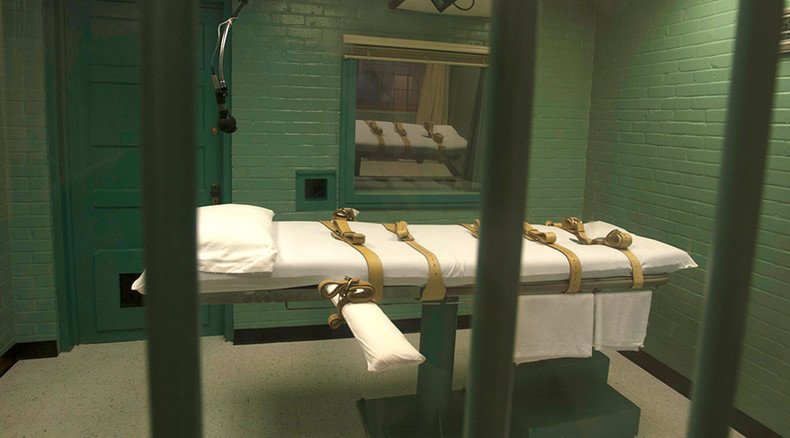Lethal injection ruled constitutional in Tennessee

A judge in Tennessee ruled that the state’s use of lethal injections for executions is constitutional. The ruling came in a lawsuit filed by death row inmates arguing the state’s method violated the Eighth Amendment.
Judge Claudia Bonnyman of David County said Wednesday that the 33 prisoners and their attorneys had not proven during the trail that the state’s protocol posed a risk to the plaintiffs’ constitutional protections.
“This court cannot find that the possibility of an accident such as the plaintiffs predict causes the protocol to violate the Eighth Amendment prohibition against cruel and unusual punishment,” Bonnyman said, according to The Tennessean.
Tennessee prison employees used inmates as slave labor for personal profit http://t.co/dc3pRxIDMdpic.twitter.com/Ne6LPfaKSA
— RT America (@RT_America) August 19, 2015Tennessee’s execution procedure calls for the use of a single lethal injection drug: compounded pentobarbital.
Bonnyman cited experts from the trial who testified that the drug was effectively used in other states, and noted it is the same drug used in Oregon and Washington in “death with dignity” cases – when terminally ill patients choose to take the drug to end their own lives.
She also cited multiple prior court cases that had found that capital punishment is constitutional and its implementation does not necessarily need to be totally pain free, provided the discomfort does not exceed what the Constitution deems “cruel and unusual.”
10 death row inmates challenge electric chair use in Tennessee http://t.co/CZ3RrOqemZ
— RT America (@RT_America) September 20, 2014During the July trial, the inmates’ attorneys said the protocol did not explain how the executions were to be carried out, creating a situation where untrained people could conceivably inflict inordinate levels of pain and suffering, or a lingering death. The state’s attorney argued that US Supreme Court rulings had ruled that inmates must prove there is a better alternative, which Bonnyman said they had been unable to prove.
Critics have argued that drugs used in lethal injections can cause extreme pain and prolonged death. In some cases, they may not kill at all, which has happened in Ohio and Oklahoma.
However, the judge’s ruling does not immediately clear the way for executions in the state to resume for the first time in five years, since being banned due to the current legal battle. A Tennessee Supreme Court ruling this year put executions on hold until final disposition of the case, which would include appeals, and the plaintiffs do plan to contest the ruling.
Electric chair returns for Tennessee death row inmates amid drug shortage http://t.co/dTqbDJ4hOG
— RT America (@RT_America) May 23, 2014Bonnyman has ruled on Tennessee’s capital punishment laws before. In 2010, she ruled the state’s use of a three-drug combination for lethal injections was unconstitutional as it allowed “for death by suffocation while conscious.”
There are currently 67 inmates on death row in the state.













